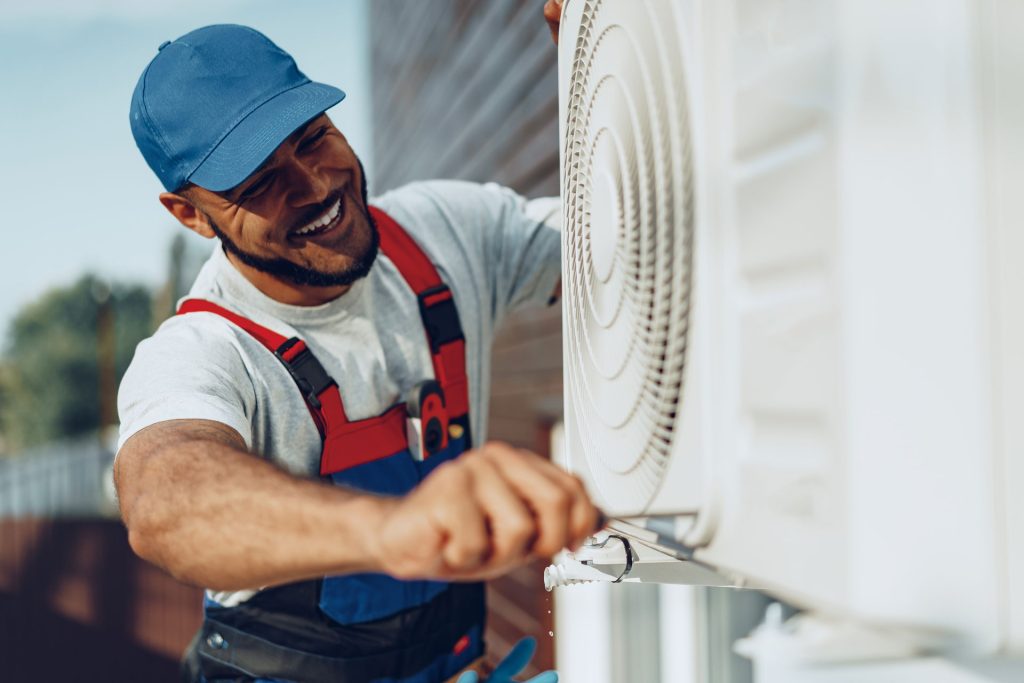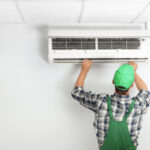Indoor air quality plays a significant role in determining the comfort and health of everyone inside a home or business. Many people are unaware of the significant impact their air conditioning system has on the air they breathe daily. When an air conditioner is not functioning properly, it can circulate dust, allergens, and pollutants throughout the indoor environment. However, timely AC repair services can help ensure that the system filters and distributes air efficiently. We will explore how professional AC maintenance and repair not only enhance system performance but also contribute to cleaner, fresher, and healthier air for everyone indoors.
Ways AC Repair Services Improve Indoor Air Quality
1. Removing Dust and Debris Through Filter Replacement
One of the primary functions of an air conditioner is to filter the air passing through it. Over time, dust, pet dander, and dirt accumulate within the filters, making it difficult for the system to push clean air into your rooms. When filters become clogged, the AC begins to circulate contaminated air instead of purifying it. Regular air conditioner repair and maintenance ensure that filters are replaced or cleaned on time. Technicians check for blocked filters and use proper cleaning methods to prevent particles from re-entering the air. By keeping the filters in good shape, the system maintains consistent airflow, reduces respiratory irritants, and helps allergy sufferers breathe more comfortably. Clean filters also help extend the lifespan of the entire system by preventing unnecessary strain on internal components.
2. Eliminating Mold and Moisture Buildup
Moisture is one of the most common causes of poor indoor air quality, especially in humid climates. When air conditioning units malfunction or develop drainage issues, excess moisture can accumulate inside the ducts or coils. This damp environment encourages the growth of mold, mildew, and bacteria, all of which can spread through the air and cause unpleasant odors or health problems. Regular AC repair addresses these issues early by identifying and fixing leaks, cleaning condensate drains, and inspecting evaporator coils for water retention. By restoring proper moisture control, the AC system helps maintain dry, clean air that’s free from microbial growth. A well-maintained system also prevents musty smells that often develop from damp conditions, ensuring your indoor environment feels fresher and more comfortable year-round.
3. Cleaning Air Ducts to Reduce Contaminant Circulation
Air ducts play a vital role in distributing cooled air throughout your home. However, over time, they can accumulate layers of dust, dirt, and even insect debris. When this happens, every time your AC runs, it blows these contaminants back into the living space. During AC repair visits, technicians often check the ductwork for buildup or leaks. If contaminants are found, duct cleaning or sealing may be recommended to prevent pollutants from spreading. This process not only improves air quality but also helps the system run more efficiently by removing obstructions in airflow. Regular inspection and repair of ducts also reduces energy waste and keeps your AC from overworking. Clean air ducts mean fewer allergens and irritants in the home, which benefits both respiratory health and overall comfort.
4. Balancing Airflow for Better Circulation
Proper airflow is essential for maintaining good indoor air quality. When your air conditioner’s fans or motors start to malfunction, it can lead to uneven cooling and stagnant air in certain areas. This stagnant air traps dust, odors, and pollutants, making the environment feel stuffy and uncomfortable. AC repair services address these mechanical issues by checking for faulty blower motors, broken fan belts, or obstructed vents. Once repaired, the improved airflow helps circulate fresh air evenly throughout the building. Balanced airflow also reduces humidity levels and maintains consistent indoor temperatures. With regular tune-ups, homeowners can enjoy cleaner air and a more stable indoor climate. Effective air circulation plays a crucial role in preventing the buildup of indoor pollutants and maintaining a refreshing environment.
5. Replacing or Repairing Faulty Components That Affect Air Quality
Certain internal parts of an air conditioning system—such as coils, fans, and compressors—directly affect how well the system filters and cools the air. When these parts malfunction, the system may not be able to remove contaminants efficiently or regulate humidity properly. During an AC repair service, technicians inspect these components to ensure they are functioning at their full capacity. Faulty coils, for instance, can collect grime and restrict airflow, while broken fans may fail to distribute air evenly. By cleaning or replacing these parts, the AC unit can operate more effectively, improving both energy efficiency and air purity. Consistent repairs prevent minor issues from escalating into bigger problems that could impact air quality and overall comfort.
Maintaining indoor air quality goes far beyond comfort—it directly impacts health, well-being, and productivity. Air conditioning systems play a crucial role in this process, as they regulate both air cleanliness and circulation. When repairs are neglected, contaminants can accumulate and spread throughout the living space, creating respiratory challenges and discomfort. Through consistent AC repair and maintenance, homeowners can prevent these problems by ensuring filters, ducts, and internal parts are functioning efficiently. The result is cleaner air, improved system performance, and a healthier home environment. By prioritizing timely repairs and tune-ups, you can enjoy a cooler space that also supports your family’s respiratory health and overall comfort throughout the year.





